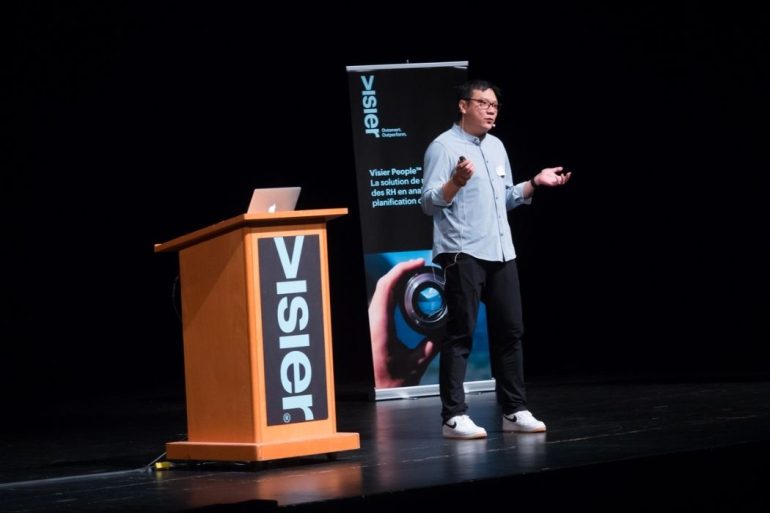Vancouver workforce analytics startup Visier has acquired the assets of Parisian startup Boostrs.
Boostrs is described as an API-first skills mapping engine that connects with companies’ human capital management (HCM) systems.
The deal marks Visier’s second acquisition to date after it bought the assets of California-based employee experience platform Yva.ai earlier this year to expand its workforce analytics platform.
“If the last 25 years has focused on the customer, we believe the next 25 will focus on the employee.”
Visier co-founder and CEO Ryan Wong told BetaKit that acquiring Boostrs’ assets enables Visier to provide broader and deeper insights for skills across the talent lifecycle. “The Boostrs team had created a product that fit well within the Visier platform.”
The Vancouver startup plans to integrate Boostrs’ data into Visier, which it claims will turn scattered internal and external workforce data into “a clear picture” of the skills employees need to “meet the challenges of an ever-changing world.”
Headquartered in Paris and founded in 2017, Boostrs helps organizations support their employees in jobs and skills training. Its customer base includes Michelin, Thales, and PwC.
Visier declined to share the deal’s financial terms, which closed in early October. The deal consists of Boostrs’ technology assets, and Visier has hired 10 Boostrs engineers and data scientists, who will continue to work in Paris, which will become a Visier satellite office. They add to Visier’s close to 600-person, global staff. Visier noted that the acquisition increases its presence in markets like France and Spain.
Founded in 2010, Visier sells people analytics and workforce planning software solutions to companies. Visier currently serves 25,000 customers across 75 countries, including Adobe, Bridgestone, Electronic Arts, and Uber. The company caters to a wide range of industries, including financial services, healthcare, hospitality, life sciences, manufacturing, and tech.
When asked about plans for future acquisitions, Wong told BetaKit that Visier is “continually assessing the market and will continue to make acquisitions where they make sense.” He noted that Visier plans to “double down” on its product growth strategy, which will include both organic and inorganic growth.
“We’ve had some amazing growth in the past year, with two acquisitions, new office openings in EMEA and APAC and strong customer and partner growth. We want to continue this momentum through the coming year.”
Visier’s foray into the M&A space comes one year after it raised $154 million CAD in equity Series E funding from Goldman Sachs at a $1.2 billion valuation. At the time, Visier claimed to be an already profitable company with a healthy bottom line that only raised the capital after Goldman Sachs expressed interest in helping the startup optimize for companies facing new human resource challenges coming out of COVID-19.
“When the pandemic is over, the surveys are saying that there will be a change in the workforce,” Wong told BetaKit at the time.
“I think it will be headline news that companies will finally wake up in the morning and find they [have lost] that percentage of their workforce,” the CEO added. “And it is a real problem. [Visier has] been beating that drum, and telling and warning that is coming because of all the data that we’re seeing.”
The increase of Visier’s customer base within the past year may be proof that Wong’s theory is pannig out. Visier has more than tripled its customer base from 8,000 in June of last year to 25,000 currently.
Visier attributes that quick growth in part to its two lines of business: direct sale to enterprises and its embedded partnerships. A spokesperson for Visier told BetaKit that: “Through our partnerships with eight different HR vendors (Zenefits was most recently announced this week) we provide thousands of organizations with Visier’s platform directly into their dashboards. This means we can now service organizations with employees as large as 500,000 or companies with even two employees.”
For his part, Visier CEO Wong added: “If the last 25 years has focused on the customer, we believe the next 25 will focus on the employee.”
Feature image courtesy Visier.


